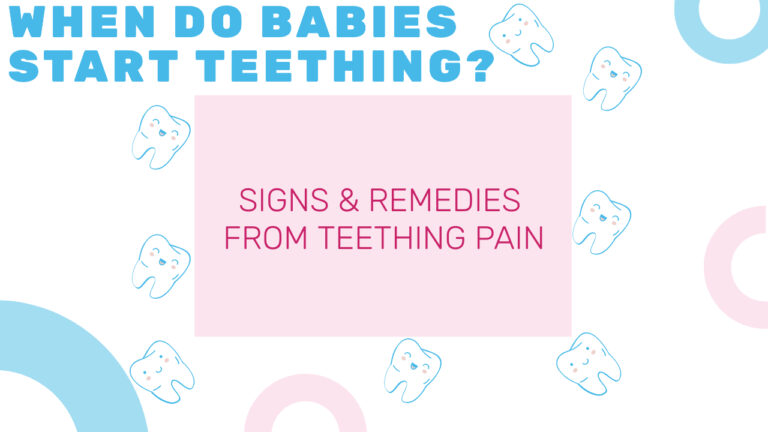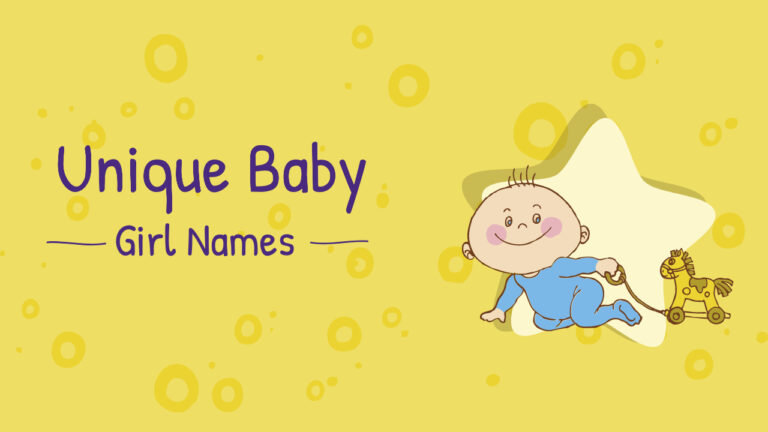When Do Babies Start Teething: Signs & Remedies of Teething

BABY TEETHING
Teething is a natural process when your baby’s gum starts making way for the first infant teeth. Popping up of the first tooth is surely a milestone worth celebrating but this process can be very frustrating and painful for both babies and parents. If you have a lucky kid for whom this phase passed like a breeze, then you should be thankful to God. As if this process starts to upset the kids, it can be very challenging to cope up for parents with a clingy, crying and a hungry child.
Teething is often painful for babies because the new tooth pops out of their tender gums/flesh. When babies start teething, they have swollen and tender gums and this could be the primary challenge of this. Common symptoms include crying, cranky behavior, diarrhea, and sleepless nights. There is no defined time period for babies to start teething. Some babies are born with a few visible teeth, most start to show signs of teething between 4 and 9 months but for some others, it can be delayed to the point that they are nearly close to their first birthday. But whatever the case, these are usually normal things and not a cause of major concern unless it is accompanied by other signs of delayed progress in child.
When do babies start teething?
Most babies usually start getting their first teeth once they are between four and seven months old. Babies generally start teething at four months, but sometimes, a baby may start teething as early as three months too. In very rare cases, a baby will start teething after he/she has turn one-year-old. A baby’s first set of teeth, molars included, is typically completed at around age 2.
In what order do baby teeth come in?
4-7 months: First, two bottom teeth appear at this point.
8-12 months: The upper middle teeth begin to emerge and show.
9-16 months: The teeth within the middle start to emerge.
13-19 months: The baby gets the primary molars along the highest and bottom.
16-22 months: In these months, the sharp and pointed teeth called the canines.
22-3o months: The second molars along the bottom side appear.
25-33 months: The second molars along the top appear.
What are the signs of teething in babies?
- Drooling: This is the first sign when babies start teething. It can start off when babies are around ten weeks old. Drooling is a classic symptom of your baby’s enamel gradually pushing towards the gum’s surface, a system that can start months earlier than the first tooth’s eruption.
- Swollen Gums: If your baby is having a red, inflated gum then it is probably due to teething
- Facial Rash: Babies often have red rashes on their cheeks and chins due to continuous drooling. Wipe your baby’s lips and chin regularly to reduce rashes.
- Fever: The inflammation caused by the popping up of teeth may also be accompanied by a mild body temperature. Keep check of the fever and suggest a pediatrician if it increases more than 101 degrees.
- Irritability: The emerging teeth tend to press along the gums, which can make them uncomfortable and cranky. The discomfort of teething can keep your baby up all night Babies tend to chew on anything they can lay their hands-on
- Ear-pulling: The ache that teething causes in the jaw can switch to the ear canal and a baby will frequently pull on his ears in hopes of alleviating getting rid of it.
- Excessive Crying: The discomfort of teething is unbearable for babies and makes them cry frequently. If you notice that they are crying and are not sure of the reason, it is definitely teething.
- Rubbing Cheeks: To soothe the pain and irritation of teething, babies often rub their cheeks hard in order to feel relief from all the discomfort.
What are the Best Remedies from Teething Pain?
- Cold washcloth: Use a cold washcloth to rub the gum. You can even use a cold spoon to provide comfort to the gum. Make certain nothing you use is frozen.
- Fruit/ Vegetable Teethers: Giving a cold fruit or vegetable as a teether to your baby can be an excellent option. By the age of six months, the mother and father tend to introduce soft chewable foods to kids, so giving cold fruits is surely a remedy for swollen gums.
- Teething Toys: The toddler market is flooded with silicon and different kinds of teething toys. Make certain that the toy is of perfect size. Always sanitize it before you give it to your child for chewing. Keeping the toy in the freezer for a couple of hours. Never forget to supervise your baby when they chew on objects.
- Massaging: Rub and massage a clean finger along the gums of the baby. This will help soothe the pain.
- Clove: Clove is a herbal anesthetic. Try making a clove tea, dip a washcloth in it, and gently rubdown over the gums. This might help in offering comfort from discomfort. You can additionally use clove oil for the same purpose.
- Comfort: All the baby care about is a little relaxation and comfort. Cuddle and give as much love as possible to your baby. Love is the cure!
- Strong Immune System: Make sure your baby’s immune system is strong. Give your baby a supplement of vitamin D after checking with your pediatrician.
- Ginger: Ginger is a natural anti-inflammatory which helps in calming those swollen gums.
How to Take Care of Baby Teeth?
Babies start teething at an early age and therefore parents should take proper care of their tiny teeth.
- Make toothcare a regular phase of your baby’s routine even before the teeth begin to show.
- Use a moistened washcloth to rub alongside your baby’s gums twice a day, mainly after feeding and before laying him down to sleep.
- When the first teeth emerge, you can buy a gentle brush with a small head and handle, which will fit with ease inside your baby’s mouth.
- Avoid using adult toothpaste till the age of 5.
- It is a good idea to visit a dentist once your baby is 1 year old.
- When your baby is about age 2, start teaching your baby how to spit while brushing.
- Avoid putting a baby to sleep with a bottle. It can cause tooth/enamel decay. The sugar for the baby formula can eat away the baby enamel.
Read our other parenting blogs by clicking on the links below:





